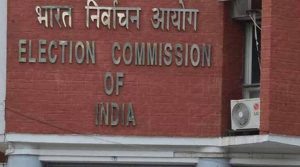Zadie Smith's recent essay in The New Yorker has caused controversy.
Chu discusses Smith's use of negative capability in her critique of his novel, highlighting the importance of seeing different perspectives.

The recent publication of British author Zadie Smith's 3,000-word essay in The New Yorker sparked an immediate and overwhelming backlash on social media. The essay, which delved into both language and philosophy, aimed to argue that the current protests on college campuses are hindered by a lack of precise language and rhetoric.
Shortly after the essay's release, Vulture reposted a 2023 review of Smith's latest book by Pulitzer Prize-winning critic Andrea Long Chu. In the review, Chu discusses Smith's use of negative capability, the ability to see both sides of an issue. Chu suggests that Smith's tendency to publicly practice negative capability throughout her career as a public intellectual often leads to controversy. This was exemplified by the response to her essay titled "Shibboleth."
Thamina Eff, a Twitter user, summed up the criticism of Smith's essay by saying, "If you want to know why Zadie Smith is two-siding a genocide after 8 months of indefensible bloodshed, Andrea Long Chu nailed it in How Zadie Smith Lost Her Teeth." Daniel José Older, another Twitter user, also weighed in, stating, "Whole essay was like 'WORDS MEAN THINGS!! or do they? Maybe not. Who can tell? What if words that mean things make people uncomfortable? Who is disempowered now? Words might mean things! Call me names if you must! A good day! You're welcome!' *Vanishes like Tuxedo Mask*"
Natalie Diaz, a writer, tweeted her frustration with Smith's approach, saying, "Who among the students and faculty protesting and who among those with families being genocided invited Zadie Smith into the conversation. The young peoples language is far beyond this dislocated, moonwalking, looking from a real safe distance rhetoric." Arnesa Buljušmić-Kustura, another writer, also shared her thoughts, stating, "Honestly it has become exhausting having to listen to liberal writers yap about 'its complicated' and 'both sides'. Just say that you are a coward and move on."
Chanda Prescod-Weinstein, a writer and academic, brought attention to a past incident involving Smith's use of racial slurs in an art review, tweeting, "I'm just gonna put up the sign reminding everyone that ZS called her kids quadroons in an art review and AFAIK has never expressed regret about the choice to do so." This tweet was accompanied by a link to an article discussing the incident.
In a 2017 piece for Longreads, writer Danielle Jackson shared similar criticisms of Smith's lack of engagement on certain issues. In a piece for Harper's Bazaar, Smith argued against a letter calling for a white woman's painting of Emmett Till's body in an open casket to be removed from an art exhibition. Jackson found this argument to be disappointing, stating, "I wished she had engaged this subject matter with her heart. I needed her to think of the logic of [Hannah] Black's letter from a place of shared pain, shared experiences, and shared anger. I needed her to really listen to it before dismantling it." Black's letter, which was reprinted by ARTNews, addressed the issue of white artists using Black pain in their art.
The reactions to Smith's essay highlight the importance of having a clear point in a nuanced discussion, especially when one side involves issues of genocide or accusations of genocide. The criticism that Smith's language is an attempt to downplay or sanitize the impact of genocide is valid, and it reflects Desmond Tutu's well-known warning against neutrality in the face of injustice.
Despite the criticism from fellow writers and academics, Smith's status as a beloved literary figure is unlikely to be affected by this essay, just as it was not affected by her previous thoughts on the controversy surrounding the painting of Emmett Till. However, Black writers and academics who are deeply concerned about social justice issues may continue to question Smith's ability to effectively address these issues, as her desire to come across as an objective philosophical authority seems to take precedence over truly confronting and reacting to problematic topics.
1 Views










